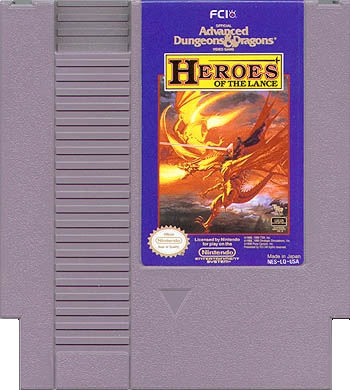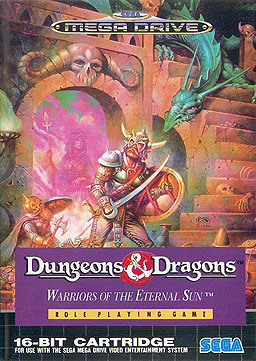I don't have enough industry knowledge to put together the kind of hypotheses you guys are coming up with, but I am interested in what exactly makes people open to older experiences in gaming. I've always been so interested in the medium, that I don't have many biases against what I'm willing to play on recommendation, especially as far as age is concerned. Not even just in a way where I tolerate things that are not commonplace today, but where I sometimes prefer something perceived as archaic when compared with modern games.
Because progress isn't linear.
I wanted to write about morality in RPG's as an example but then I've realised that the topic gets extremely complicated because it's something that even modern mainstream games can do right from time to time, there are just some extremely popular games that are severely dumbed-down in this aspect(take a guess which ones).
Then I wanted to write about puzzles in adventure games, but I've played like 20 "proper" adventure games in my life(beaten like 15 out of those) and watched my brother playing telltale games(which I wanted to compare it to the games I've played) so I don't necessarily feel like I'm "educated" enough when it comes to adventure games.
So I'll just write another post about combat systems but I'll try to put an emphasis on non-linearity of progress.
Just one rule to simplify the discussion - imagine,
RPG's are nothing but combat.
You often hear that modern mainstream RPG's are in fact Action-RPG's. Let's look at 3 of them - Dark Souls, Diablo 3 and Dragon Age:Inquisition.
Those 3 are quite different aren't they? If you look at the bigger picture, Dark Souls is more of a TPP action game as far as the gameplay goes.
Diablo 3 is obviously descendant from Diablo which was the "line" created by merging RPG stats and controls and top-down action game gameplay.
Dragon Age is bastardised RTwP.
Of course there are games that can be places somewhere in-between of those.
Liking, or not liking the systems as a whole is more of a personal preference(some people just have popamole preferences).
Are they the only combat systems in RPG's? Of course not. There are blobbers(turn based/real time), (non-bastardised) RTwP, "tactical" turn based systems etc.
Today it's little different thanks to kickstarter and indie boom but in let's say 2008 you've didn't had a choice. So why have people played old games? Because they've found the combat more appealing and new games didn't provide them. That's what "opened them" for the experience.
It doesn't mean old games did everything right and cloning them will produce high-quality game though.
I've never considered anything ideal. I always say there is a room for progress.
The decline's era biggest mistake was abandoning the progress in every "design school" outside of the most mainstream ones, and I don't mind those "casual" designs either - for example I really like Fable despite it being incredibly popamole
(codex will probably lynch me after that post and I wouldn't be surprised if my next average posts will be 10 times as long than they're now, you know, gotta stack those newly earned dumbfuck tags somewhere), but the industry railroaded design into tight tunnel and didn't allowed to do anything different. That's what hurt.
In case of Fable it meant that your character shouldn't age or change his body build by stacking strength skills(let alone growing cool-ass horns when you were evil) - as it would create consequences(so if somebody wanted to be slim, skeleton guy, he had to invest in magic and if he used magic too often, his hair would turn grey) which was something somebody considered as "not fit for wider audience". So as you can see, nothing was safe from decline. Even the game that I would probably find in this thread being named dozens of times and cited as a decline flagship(as I've did with Oblivion).
That "mistake" seems to be sign of "incline" too.
The reason why PoE beta generated so much butthurt was - it's just standard RTwP game. Which is nice if you're bored after beating IWD2 for 20th time, but the gameplay doesn't feel like going anywhere. Now compare it to Divinity, which isn't that much less broken mechanically than PoE but it sure felt fresh even though it was a "homage" to games that were more than two decades old. The reactions are quite different, aren't they? Why?









![Have Many Potato [2013] Codex 2013](/forums/smiles/campaign_tags/campaign_potato2013.png)
![The Year of Incline [2014] Codex 2014](/forums/smiles/campaign_tags/campaign_incline2014.png)




























